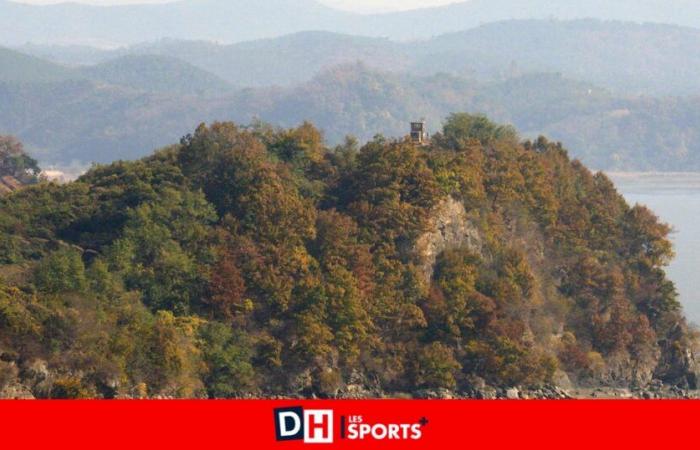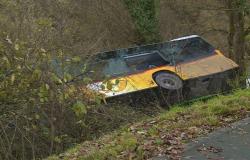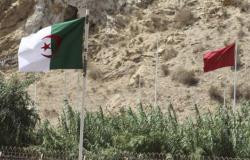
Ahn Hyo Chol, 66, remembers North Korean propaganda broadcasts of yesteryear, which vilified the South’s leaders and praised the Pyongyang regime.
Whereas today, “it’s the howls of wolves, the noises of ghosts,” he says. “It’s unpleasant. It gives me chills. It’s really weird.”
North Korea jams GPS signals, affecting planes and ships in South Korea
“Tormenting people”
For Park Heung-yeol, municipal councilor of Ganghwa, “this is not simple propaganda of the regime. It really aims to torment people.”
An AFP team went to Ganghwa during the night and heard these terrible noises being broadcast loudly. The disturbing mix of dying screams, crackles of automatic weapons, explosions, haunting laughter and screams and sinister music begins at 11 p.m.
Sleep deprivation and deafening noise are well-known forms of torture. According to experts, exposure to more than 60 decibels at night increases the risk of sleep disorders. In Ganghwa, AFP measured North Korean noises reaching up to 80 decibels.
“I find myself taking headache medicine almost all the time,” An Mi-hee, 37, who also complains of anxiety, eye pain, facial tremors and headaches, told AFP. drowsiness. “Our children can’t sleep either. They develop canker sores and they fall asleep at school.”
Desperate, Ms. An even knelt down in tears before National Assembly deputies in Seoul in October, begging them to find a solution.
– “More like an earthquake” –
“I would prefer a flood, a fire or even an earthquake, because for these events we always know that we will eventually recover from it,” says Ms. An. “There, we don’t know if it will continue until “Whether the person giving the orders in North Korea dies, or if it could stop at any time, we just don’t know.”
Seoul’s politicians “should come here and try to live with this noise for just ten days. I doubt they can stand it for more than a single day,” said Choi Hyoung-chan, 60, another resident. from Ganghwa.
According to sound engineers consulted by AFP, the noise appears to be a rudimentary mix of clips from a sound library, such as those used by radio and television stations.
“It looks like it comes straight out of a South Korean horror film from the 1970s and 1980s,” said one of these engineers, Hwang Kwon-ik.
Some speculate that by broadcasting these noises, North Korea is, in fact, seeking to drown out the sound propaganda coming from the South, fearing that it will incite its troops to defect.
In August, just after Seoul resumed propaganda, a North Korean soldier managed to cross to the South on foot. Some experts have suggested that music and messages from the South encouraged him to attempt the dangerous crossing of the demilitarized zone, infested with mines and other traps.
But for Lee Su-yong, professor of audio production at the Dong-Ah Institute for Media and the Arts, this hypothesis does not hold water, with North Korean speakers facing the south.
“If we want to mask a sound directed towards the north, then the sound used to cover it must also be directed towards the north,” he explains to AFP. “Given the structure of the sound, it appears to be less about masking a noise and more about inflicting pain on Southerners.”





